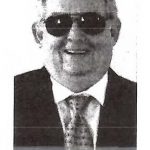Robert “Bob” Mihailovich-Scam Convicted Again!
Robert “Bob” Mihailovich Sr. Creates
“New” investment scheme: Violates
terms of Parole on previous conviction!
Beware of Mihailovich and the companies he has traded for (FXCM, I-Trade and Taurus Global Markets) You will likely be swindled and LOOSE YOUR MONEY!!!!
Robert Mihailovich Sr. (a convicted felon) of 6218 new Forest Drive, Rockwall, Texas 75087 is under investigation for defrauding at least 14 individual investors of $900,406,000 dollars through Growth Capital Management Corporation.
Mihailovich pled guilty to a charge of mail fraud, aiding and abetting on 03-24-2005 for offenses which took place in 1999 and 2000. Federal District Court of Dallas Texas (3:05-cr-00067-N). He was ordered to make restitution in the amount of $197,446.12 and pay a $50,000 fine and was ordered to serve 21 months in prison beginning October 3rd 2005. After his release he was to serve three years of supervised release with a special condition that he “refrain from incurring new credit charges or opening additional lines of credit without approval from his probation officer Sherry Britt, probation office in Garland, Texas. It was also alleged he obtained a line of credit in the amount of 50,000 from Chase Bank activity prohibited by his prior felony conviction.
Mr. Mihailovich claimed to have a 30 years history of never losing money investing in the futures market using his proprietary software program and “Better Math”. Mihailovich marketing materials made statements: “NO WAY TO LOSE”, “NO RISK TO THE INVESTED CAPITAL” AND “RESULTS ARE GAURANTEED”. At least one investor has a signed affidavit “Under penalty of perjury that he was told, “I have never experienced a loss in more than 30 years of trading”
Victims indicate that between about May 2008 and January 2009 Mihailovich operated by guaranteeing at least a 10% profit per month on each account, which he would then split -50/50 with each investor. 14 investors all have had similar experiences: After depositing large initial investments to a joint trading account Mihailovich would draw down the account in a very short period of time.
The victims accounts some with beginning balances over $100,000 would be drained of value to less than a few hundred dollars in less than few short days blaming the losses on accounting errors of investment/trading firms holding the funds.
A source at the National Futures Association stated, “Failure to declare Mihailvoich was a convicted felon would be grounds for immediate dismissal”. The SEC (Securities and Exchange Commission) and the CFTC (Commodity Futures Trading Commission) indicate that Mihailovich nor anyone from his company were registered to act as traders until September 12th 2008 when Robert Mihailovich Jr became a registered agent for Growth Capital Management through NFA http://www.nfa.futures.org/ and the CFTC http://www.cftc.gov/ .
Mihailovich entered agreements with and was allowed to manage and “Trade” funds through three different currency-trading companies without proper credentials;
TAURUS: http://tgmfx.com/ 1300 Oak Creek Drive #319 Palo Alto, CA 94304 Tomo Sagare, President 650-814-7320, Kaz Nakanigaishi, Chief Representative 650-291-6642
ITRADE: 400 Colonial Center Parkway Suite #300 lake Mary, FL 800-842-6061 trading
FXCM (http://www.fxcm.com Forex Capital Markets, Financial Square 32 Old Slip, 10th Floor, New York, NY 10005 USA 888-503-6739
FXCM was the only company that stepped forward and accepted any type of responsibility in this fiasco offering one investor who is a retired widow living on a “fixed income” a paltry $3000 in exchange for signing a hold harmless in an attempt to have the victim release them of any further responsibility after her account went from $50,000 to $500 “within hours” between the 5th or 6th of January 2009. This victim has since been forced to come out of retirement and gone back to work due to her significant loss. Additionally a previous employee has stated that Mihailovich owes him over $40,000 in back wages and has since terminated his employment.
If you have any information related to Mr. Mihailovich’s investment schemes please contact:
See press release from the CFTC:
CFTC Seeks to Revoke Registration of Growth Capital Management LLC Based on CFTC Anti-Fraud Action
Washington, DC – The U.S. Commodity Futures Trading Commission (CFTC) today filed a notice of intent to revoke the registration of Growth Capital Management LLC (GCM) of Rockwall, Texas. GCM is a registered Commodity Pool Operator and Commodity Trading Advisor.
The CFTC’s notice alleges that GCM is subject to statutory disqualification from CFTC registration based on a default judgment order and an order of permanent injunction entered by the U.S. District Court for the Northern District of Texas on March 15, 2011, and June 26, 2012, respectively (see CFTC News Release 6299-12, July 9, 2012). The permanent injunction order requires GCM jointly and severally to make restitution to defrauded customers, disgorge ill-gotten gains, and pay a civil monetary penalty, together totaling over $9.3 million, for fraudulently soliciting over $30 million from customers to trade commodity futures contracts and foreign currency (forex). The order also permanently bans GCM from further violations of the anti-fraud provisions of the Commodity Exchange Act and permanently bans GCM from engaging in certain commodities related activity, including trading and seeking registration in any capacity with the CFTC.
The court’s order arises out of a CFTC complaint filed on July 27, 2010, against GCM, Robert Mihailovich, Sr., and Robert Mihailovich, Jr., the son of Mihailovich, Sr. (see CFTC Press Release 5863-10, July 28, 2010). Mihailovich, Sr. was convicted and incarcerated on federal wire fraud charges, served 27 months and, while on a three-year supervised release, fraudulently solicited and accepted more than $30 million from approximately 93 customers to open managed trading accounts, according to the complaint. Mihailovich, Jr., at the time of GCM’s initial registration, failed to disclose Mihailovich, Sr.’s involvement with GCM and failed to disclose in CFTC registration filings that his father was a controlling principal of GCM, the complaint alleged.
The CFTC Division of Enforcement staff members responsible for this case are Alison B. Wilson, Boaz Green, Stephen T. Tsai, Maura M. Viehmeyer, Philip Tumminio, Michelle Bougas, Anne Termine, Gretchen L. Lowe, and Vincent A. McGonagle.
http://www.cftc.gov/PressRoom/PressReleases/pr6335-12


